- Home
- P. D. James
The Victim Page 2
The Victim Read online
Page 2
It took me four months to find the house I wanted. It had to be on or very near to the river within two or three miles upstream of Collingford’s house. It had to be small and reasonably cheap. Money wasn’t too much of a difficulty. It was a time of rising house prices and the modern bungalow sold at three hundred pounds more than I had paid for it. I could get another mortgage without difficulty if I didn’t ask for too much, but I thought it likely that, for what I wanted, I should have to pay cash.
The house agents perfectly understood that a man on his own found a three-bedroom bungalow too large for him and, even if they thought me rather vague about my new requirements and irritatingly imprecise about the reasons for rejecting their offerings, they still sent me others to view. And then, suddenly on an afternoon in April, I found exactly what I was looking for. It actually stood on the river, separated from it only by a narrow towpath. It was a one-bedroom, shack-like wooden bungalow with a tiled roof, set in a small neglected plot of sodden grass and overgrown flower beds. There had once been a wooden landing stage but now the two remaining planks, festooned with weeds and tags of rotted rope, were half-submerged beneath the slime of the river. The paint on the small veranda had long ago flaked away. The wallpaper of twined roses in the sitting room was blotched and faded. The previous owner had left two old cane chairs and a ramshackle table. The kitchen was pokey and ill-equipped. Everywhere there hung a damp miasma of depression and decay. In summer, when the neighbouring shacks and bungalows were occupied by holidaymakers and weekenders, it would, no doubt, be cheerful enough. But in October, when I planned to kill Collingford, it would be as deserted and isolated as a disused morgue. I bought it and paid cash. I was even able to knock two hundred pounds off the asking price.
My life that summer was almost happy. I did my job at the library adequately. I lived alone in the shack, looking after myself as I had before my marriage. I spent my evenings watching television. The images flickered in front of my eyes almost unregarded, a monochrome background to my bloody and obsessive thoughts.
I practised with the knife until it was as familiar in my hand as an eating utensil. Collingford was taller than me by six inches. The thrust then would have to be upward. It made a difference to the way I held the knife and I experimented to find the most comfortable and effective grip. I hung a bolster on a hook in the bedroom door and lunged at a marked spot for hours at a time. Of course, I didn’t actually insert the knife; nothing must dull the sharpness of its blade. Once a week, a special treat, I sharpened it to an even keener edge.
Two days after moving into the bungalow I bought a dark-blue untrimmed tracksuit and a pair of light running shoes. Throughout the summer I spent an occasional evening running on the towpath. The people who owned the neighbouring chalets – when they were there, which was infrequently – got used to the sound of my television through the closed curtains and the sight of my figure jogging past their windows. I kept apart from them and from everyone, and summer passed into autumn. The shutters were put up on all the chalets except mine. The towpath became mushy with fallen leaves. Dusk fell early, and the summer sights and sounds died on the river. And it was October.
He was due to die on Thursday October 17th, the anniversary of the final decree of divorce. It had to be a Thursday, the evening which he spent by custom alone in his workshop, but it was a particularly happy augury that the anniversary should fall on this day. I knew that he would be there. Every Thursday for nearly a year I had padded along the two and a half miles of the footpath in the evening dusk and had stood briefly watching the squares of light from his windows and the dark bulk of the house behind.
It was a warm evening. There had been a light drizzle for most of the day but, by dusk, the skies had cleared. There was a thin white sliver of moon and it cast a trembling ribbon of light across the river. I left the library at my usual time, said my usual goodnights. I knew that I had been my normal self during the day, solitary, occasionally a little sarcastic, conscientious, betraying no hint of the inner tumult.
I wasn’t hungry when I got home but I made myself eat an omelette and drink two cups of coffee. I put on my swimming trunks and hung around my neck a plastic toilet bag containing the knife. Over the trunks I put on my track suit, slipping a pair of thin rubber gloves into the pocket. Then, at about quarter past seven, I left the shack and began my customary gentle trot along the tow path.
When I got to the chosen spot opposite to Collingford’s house I could see at once that all was well. The house was in darkness but there were the expected lighted windows of his workshop. I saw that the cabin cruiser was moored against the boathouse. I stood very still and listened. There was no sound. Even the light breeze had died and the yellowing leaves on the riverside elms hung motionless. The towpath was completely deserted. I slipped into the shadow of the hedge where the trees grew thickest and found the place I had already selected. I put on the rubber gloves, slipped out of the tracksuit, and left it folded around my running shoes in the shadow of the hedge. Then, still watching carefully to left and right, I made my way to the river.
I knew just where I must enter and leave the water. I had selected a place where the bank curved gently, where the water was shallow and the bottom was firm and comparatively free of mud. The water struck very cold, but I expected that. Every night during that autumn I had bathed in cold water to accustom my body to the shock. I swam across the river with my methodical but quiet breaststroke, hardly disturbing the dark surface of the water. I tried to keep out of the path of moonlight but, from time to time, I swam into its silver gleam and saw my red gloved hands parting in front of me as if they were already stained with blood.
I used Collingford’s landing stage to clamber out the other side. Again I stood still and listened. There was no sound except for the constant moaning of the river and the solitary cry of a night bird. I made my way silently over the grass. Outside the door of his workroom, I paused again. I could hear the noise of some kind of machinery. I wondered whether the door would be locked, but it opened easily when I turned the handle. I moved into a blaze of light.
I knew exactly what I had to do. I was perfectly calm. It was over in about four seconds. I don’t think he really had a chance. He was absorbed in what he had been doing, bending over a lathe, and the sight of an almost naked man, walking purposely towards him, left him literally impotent with surprise. But, after that first paralysing second, he knew me. Oh yes, he knew me! Then I drew my right hand from behind my back and struck. The knife went in as sweetly as if the flesh had been butter. He staggered and fell. I had expected that and I let myself go loose and fell on top of him. His eyes were glazed, his mouth opened and there was a gush of dark red blood. I twisted the knife viciously in the wound, relishing the sound of tearing sinews. Then I waited. I counted five deliberately, then raised myself from his prone figure and crouched behind him before withdrawing the knife. When I withdrew it there was a fountain of sweet-smelling blood which curved from his throat like an arch. There is one thing I shall never forget. The blood must have been red, what other colour could it have been? But, at the time and for ever afterwards, I saw it as a golden stream.
I checked my body for bloodstains before I left the workshop and rinsed my arms under the cold tap at his sink. My bare feet made no marks on the wooden-block flooring. I closed the door quietly after me and, once again, stood listening. Still no sound. The house was dark and empty.
The return journey was more exhausting than I had thought possible. The river seemed to have widened and I thought that I should never reach my home shore. I was glad I had chosen a shallow part of the stream and that the bank was firm. I doubt whether I could have drawn myself up through a welter of mud and slime. I was shivering violently as I zipped up my tracksuit, and it took me precious seconds to get on my running shoes. After I had run about a mile down the towpath I weighted the toilet bag containing the knife with stones from the path and hurled it into the middle of the river. I guessed tha
t they would drag part of the Thames for the weapon but they could hardly search the whole stream. And, even if they did, the toilet bag was one sold at the local chain store which anyone might have bought, and I was confident that the knife could never be traced to me. Half an hour later I was back in my shack. I had left the television on and the news was just ending. I made myself a cup of hot cocoa and sat to watch it. I felt drained of thought and energy as if I had just made love. I was conscious of nothing but my tiredness, my body’s coldness gradually returning to life in the warmth of the electric fire, and a great peace.
He must have had quite a lot of enemies. It was nearly a fortnight before the police got round to interviewing me. Two officers came, a Detective Inspector and a Sergeant, both in plain clothes. The Sergeant did most of the talking; the other just sat, looking round at the sitting room, glancing out at the river, looking at the two of us from time to time from cold grey eyes as if the whole investigation were a necessary bore. The Sergeant said the usual reassuring platitudes about just a few questions. I was nervous, but that didn’t worry me. They would expect me to be nervous. I told myself that, whatever I did, I mustn’t try to be clever. I mustn’t talk too much. I had decided to tell them that I spent the whole evening watching television, confident that no one would be able to refute this. I knew that no friends would have called on me. I doubted whether my colleagues at the library even knew where I lived. And I had no telephone so I need not fear that a caller’s ring had gone unanswered during that crucial hour and a half.
On the whole it was easier than I had expected. Only once did I feel myself at risk. That was when the Inspector suddenly intervened. He said in a harsh voice:
‘He married your wife didn’t he? Took her away from you some people might say. Nice piece of goods, too, by the look of her. Didn’t you feel any grievance? Or was it all nice and friendly? You take her, old chap. No ill feelings. That kind of thing.’
It was hard to accept the contempt in his voice but if he hoped to provoke me he didn’t succeed. I had been expecting this question. I was prepared. I looked down at my hands and waited a few seconds before I spoke. I knew exactly what I would say.
‘I could have killed Collingford myself when she first told me about him. But I had to come to terms with it. She went for the money you see. And if that’s the kind of wife you have, well she’s going to leave you sooner or later. Better sooner than when you have a family. You tell yourself “good riddance”. I don’t mean I felt that at first, of course. But I did feel it in the end. Sooner than I expected, really.’
That was all I said about Elsie then or ever. They came back three times. They asked if they could look round my shack. They looked round it. They took away two of my suits and the tracksuit for examination. Two weeks later they returned them without comment. I never knew what they suspected, or even if they did suspect. Each time they came I said less, not more. I never varied my story. I never allowed them to provoke me into discussing my marriage or speculating about the crime. I just sat there, telling them the same thing over and over again. I never felt in any real danger. I knew that they had dragged some lengths of the river but that they hadn’t found the weapon. In the end they gave up. I always had the feeling that I was pretty low on their list of suspects and that, by the end, their visits were merely a matter of form.
It was three months before Elsie came to me. I was glad that it wasn’t earlier. It might have looked suspicious if she had arrived at the shack when the police were with me. After Collingford’s death I hadn’t seen her. There were pictures of her in the national and local newspapers, fragile in sombre furs and black hat at the inquest, bravely controlled at the crematorium, sitting in her drawing room in afternoon dress and pearls with her husband’s dog at her feet, the personification of loneliness and grief.
‘I can’t think who could have done it. He must have been a madman. Rodney hadn’t an enemy in the world.’
That statement caused some ribald comment at the library. One of the assistants said, ‘He’s left her a fortune I hear. Lucky for her she had an alibi. She was at a London theatre all the evening, watching Macbeth. Otherwise, from what I’ve heard of our Rodney Collingford, people might have started to get ideas about his fetching little widow.’
Then he gave me a sudden embarrassed glance, remembering who the widow was.
And so one Friday evening, she came. She drove herself and was alone. The dark green Saab pulled up to my ramshackle gate. She came into the sitting room and looked around in a kind of puzzled contempt. After a moment, still not speaking, she sat in one of the fireside chairs and crossed her legs, moving one caressingly against the other. I hadn’t seen her sitting like that before. She looked up at me. I was standing stiffly in front of her chair, my lips dry. When I spoke I couldn’t recognise my own voice.
‘So you’ve come back?’ I said.
She stared at me, incredulous, and then she laughed:
‘To you? Back for keeps? Don’t be silly, darling! I’ve just come to pay a visit. Besides, I wouldn’t dare to come back, would I? I might be frightened that you’d stick a knife into my throat.’
I couldn’t speak. I stared at her, feeling the blood drain from my face. Then I heard her high, rather childish voice. It sounded almost kind.
‘Don’t worry, I shan’t tell. You were right about him, darling, you really were. He wasn’t at all nice really. And mean! I didn’t care so much about your meanness. After all, you don’t earn so very much, do you? But he had half a million! Think of it, darling. I’ve been left half a million! And he was so mean that he expected me to go on working as his secretary even after we were married. I typed all his letters! I really did! All that he sent from home, anyway. And I had to open his post every morning unless the envelopes had a secret little sign on them he’d told his friends about to show that they were private.’
I said through bloodless lips:
‘So all my notes—’
‘He never saw them, darling. Well, I didn’t want to worry him, did I? And I knew they were from you. I knew when the first one arrived. You never could spell communication, could you? I noticed that when you used to write to the house agents and the solicitor before we were married. It made me laugh considering that you’re an educated librarian and I was only a shop assistant.’
‘So you knew all the time. You knew that it was going to happen.’
‘Well, I thought that it might. But he really was horrible, darling. You can’t imagine. And now I’ve got half a million! Isn’t it lucky that I have an alibi? I thought you might come on that Thursday. And Rodney never did enjoy a serious play.’
*
After that brief visit I never saw or spoke to her again. I stayed in the shack, but life became pointless after Collingford’s death. Planning his murder had been an interest, after all. Without Elsie and without my victim there seemed little point in living. And, about a year after his death, I began to dream. I still dream, always on a Monday and Friday. I live through it all again; the noiseless run along the towpath over the mush of damp leaves; the quiet swim across the river; the silent opening of his door; the upward thrust of the knife; the vicious turn in the wound; the animal sound of tearing tissues; the curving stream of golden blood. Only the homeward swim is different. In my dream the river is no longer a cleansing stream, luminous under the sickle moon, but a cloying, impenetrable, slow-moving bog of viscous blood through which I struggle in impotent panic towards a steadily receding shore.
I know about the significance of the dream. I’ve read all about the psychology of guilt. Since I lost Elsie I’ve done all my living through books. But it doesn’t help. And I no longer know who I am. I know who I used to be, our local assistant librarian, gentle, scholarly, timid, Elsie’s husband. But then I killed Collingford. The man I was couldn’t have done that. He wasn’t that kind of person. So who am I? It isn’t really surprising, I suppose, that the library committee suggested so tactfully that I ought to look for a les
s exacting job. A less exacting job than the post of assistant librarian? But you can’t blame them. No one can be efficient and keep his mind on the job when he doesn’t know who he is.
Sometimes, when I’m in a public house – and I seem to spend most of my time there nowadays since I’ve been out of work – I’ll look over someone’s shoulder at a newspaper photograph of Elsie and say:
‘That’s the beautiful Ilsa Mancelli. I was her first husband.’
I’ve got used to the way people sidle away from me, the ubiquitous pub bore, their eyes averted, their voices suddenly hearty. But sometimes, perhaps because they’ve been lucky with the horses and feel a spasm of pity for a poor deluded sod, they push a few coins over the counter to the barman before making their way to the door, and buy me a drink.
About Faber Stories
Faber Stories, a landmark series of gem-like volumes, presents masters of the short-story form at work in a range of genres and styles. From precious rediscoveries to gender-playful fictions, fabular futurism to uncanny imaginings, there are stories by a new generation of Faber authors alongside Faber classics. Bringing together past, present and future in our ninetieth year, Faber Stories is a celebratory compendium of collectable work.
Robert Aickman: The Inner Room
Brian Aldiss: Three Types of Solitude
Djuna Barnes: The Lydia Steptoe Stories
Samuel Beckett: Dante and the Lobster
Alan Bennett: The Shielding of Mrs Forbes
Petina Gappah: An Elegy for Easterly
Sarah Hall: Mrs Fox

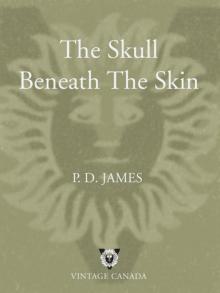 The Skull Beneath the Skin
The Skull Beneath the Skin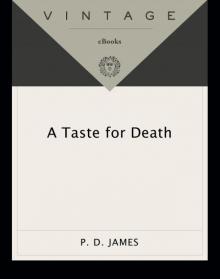 A Taste for Death
A Taste for Death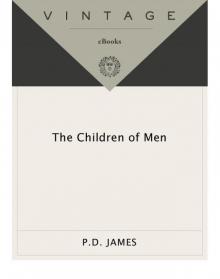 The Children of Men
The Children of Men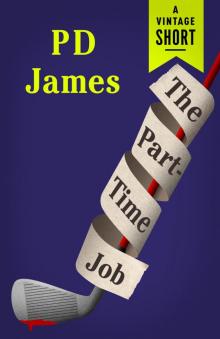 The Part-Time Job
The Part-Time Job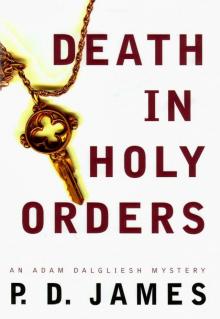 Death in Holy Orders
Death in Holy Orders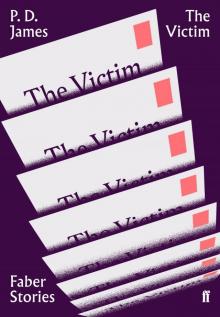 The Victim
The Victim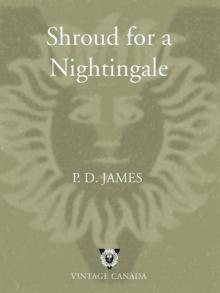 Shroud for a Nightingale
Shroud for a Nightingale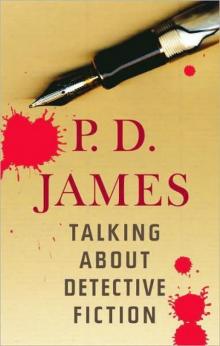 Talking about Detective Fiction
Talking about Detective Fiction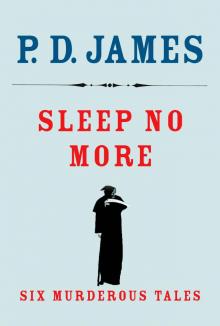 Sleep No More
Sleep No More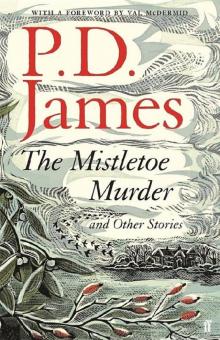 The Mistletoe Murder and Other Stories
The Mistletoe Murder and Other Stories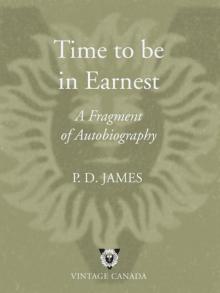 Time to Be in Earnest
Time to Be in Earnest Original Sin
Original Sin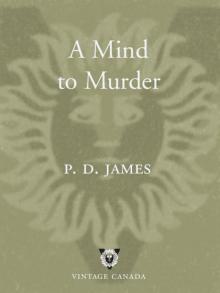 A Mind to Murder
A Mind to Murder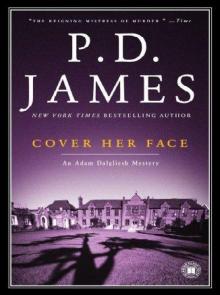 Cover Her Face
Cover Her Face Innocent Blood
Innocent Blood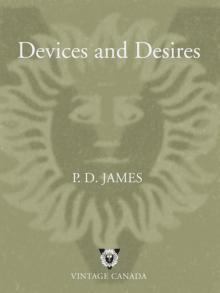 Devices and Desires
Devices and Desires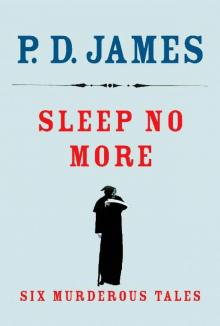 Sleep No More: Six Murderous Tales
Sleep No More: Six Murderous Tales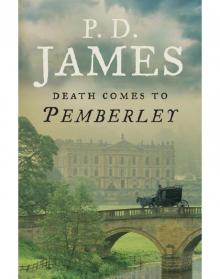 Death Comes to Pemberley
Death Comes to Pemberley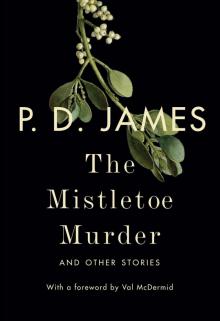 The Mistletoe Murder
The Mistletoe Murder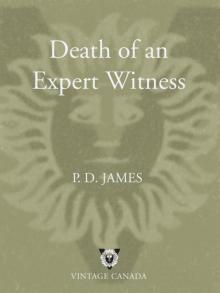 Death of an Expert Witness
Death of an Expert Witness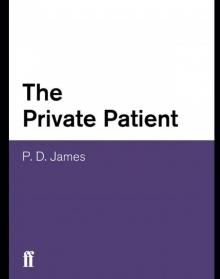 The Private Patient
The Private Patient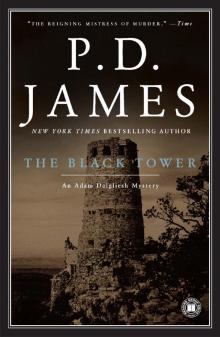 The Black Tower
The Black Tower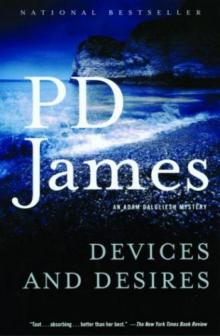 Devices & Desires - Dalgleish 08
Devices & Desires - Dalgleish 08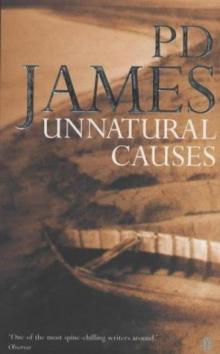 Unnatural Causes
Unnatural Causes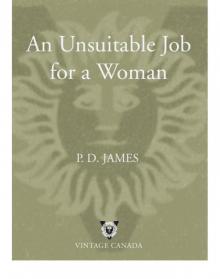 An Unsuitable Job for a Woman
An Unsuitable Job for a Woman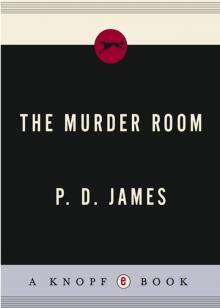 The Murder Room
The Murder Room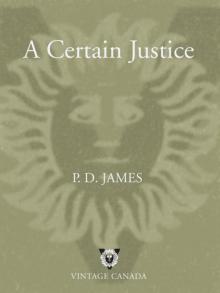 A Certain Justice
A Certain Justice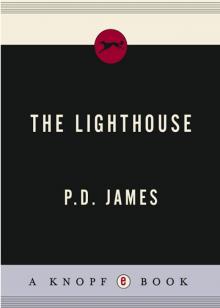 The Lighthouse
The Lighthouse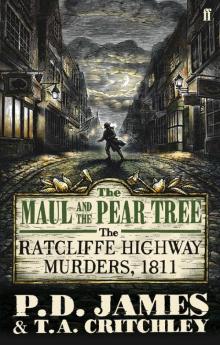 The Maul and the Pear Tree
The Maul and the Pear Tree